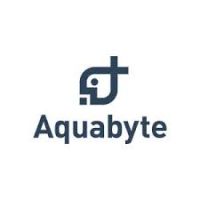Aquabyte is seeking a Computer Vision Engineer to help develop and deploy new algorithms to fish farms across the world. You’ll be responsible for software and machine learning model development of our on-camera and cloud software.
Our mission
Aquabyte is on a mission to revolutionize the sustainability and efficiency of aquaculture. It is an audacious, and incredibly rewarding mission. By making fish farming more efficient and viable, we aim to promote healthy (for the fish and environment) production of low carbon protein and mitigate one of the biggest causes of climate change. Aquaculture is the single fastest growing food-production sector in the world, and now is the time to define how technology is used to harvest the sea and preserve it for generations to come.
We are a diverse, mission-driven team that is eager to work alongside kindred spirits. If this vision inspires you please get in touch.
Our product
We are currently focused on helping salmon farmers better understand their fish population and make environmentally sound decisions. Through custom underwater cameras, computer vision, and machine learning we are able to quantify fish weights, detect the health status, and generate optimal feeding plans in real time. Our product operates at three levels: on-site hardware for image capture, cloud pipelines for data processing, and a user-facing web application. As a result, there are hundreds of moving pieces and no shortage of fascinating challenges across all levels of the stack.
Above all, Aquabyte is a customer-driven company. Our product development is dictated by the needs of fish farmers and we prioritize customer delight in everything we do. We are committed to building a global, collaborative team.
The role
As a Computer Vision Engineer you will be responsible for doing the software and machine learning model development to improve the intelligence and efficiency of our camera system. This role is on the AI team where we focus on developing so on understanding the weight and health of individual fish and fish populations. You will work closely alongside engineers with years of industry and academic experience.
Job Requirements
- BS/MS in relevant technical degree
- 3+ years of experience with building computer vision software
- Strong coding ability; strong grasp of Python
- Experience with stereo vision, 3D reconstruction, and stereo calibration
- Experience with training neural networks / deep learning (ideally pytorch)
Bonus Requirements
- Experience optimizing model inference for real-time inference on limited resources
- Strong software engineering skills; knowledge of best practices, testing, and deployment
- Experience deploying models to NVIDIA Jetson boards or similar resource constrained environments
- Experience with Docker and cloud SW development (i.e. AWS)
- Basic database interaction; knowledge of SQL
Benefits
- Competitive salaries and generous equity
- Unlimited vacation policy
- Flexible working hours + hybrid work policy
- Medical, vision, & dental insurance
- Retirement matching plan
- Potential travel to Norway
- Evolve in a fast-paced environment
- Be able to shape a business in its early days
- Get ideas, feedback, and suggestions from other best-in-their-field colleagues
- Mentorship opportunities, we'll be dedicated to investing in you and supporting you as you grow
Aquabyte is a private company headquartered in San Francisco, and is supported by NEA, Costanoa Ventures, and many other respected investors.
At Aquabyte, we admire interesting people with a unique background. We strongly encourage you to apply even if you don’t satisfy all the requirements, and we will get back to you as soon as possible!
Top Skills
What We Do
Aquabyte is one of the few companies applying machine learning / computer vision to directly solve the world’s food sustainability issues.
Fish farming is the #1 fastest growing sector of food production - a $180B worldwide industry. By improving fish farm efficiency, we help close the world’s impending protein deficit.
We work on very challenging distributed image processing and machine learning problems, and our work has direct relevance on the world’s food chain. Come join us!










